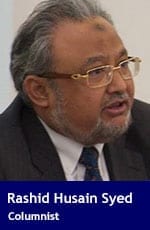 Oil-dependent economies are in a real quandary. Sliding markets, lowering demand and strong output capacities are set to hit the single-product, oil-rich economies of the Middle East, the International Monetary Fund (IMF) said in a recent report.
Oil-dependent economies are in a real quandary. Sliding markets, lowering demand and strong output capacities are set to hit the single-product, oil-rich economies of the Middle East, the International Monetary Fund (IMF) said in a recent report.
These oil-rich Persian Gulf states are now expected to see a six per cent real gross domestic product (GDP) contraction this year, the report said.
Real GDP growth for the states in the Gulf Co-operation Council (GCC) averaged 4.7 per cent from 2000 to 2016.
“On average, we will see growth going negative (in 2020) by 6.6 per cent for oil-exporting countries,” Jihad Azour, director of the IMF’s Middle East and Central Asia department, told CNBC.
While oil prices have recovered from their historic plunge, international benchmark Brent crude is still trading nearly 40 per cent below pre-pandemic levels. And the IMF isn’t projecting that oil prices will stage a dramatic recovery anytime soon.
The IMF believes prices will stay in the $40-to-$50 range in 2021. That’s still half the $80-per-barrel figure Organization of Petroleum Exporting Countries (OPEC) kingpin Saudi Arabia needs to balance its budget.
Even future projections aren’t rosy. IMF sees oil prices staying between $40 and $45 until at least early next year, adding it could “be between $40 to $50 next year overall.”
Crude oil demand is a key variable, yet “addition to global supplies that could come from alternative energies” is now expected to play a significant role in determining the direction of the crude markets.
In September, the International Energy Agency cut its outlook for worldwide oil demand to 91.7 million barrels per day (bpd) for the year. That’s a daily contraction of 8.4 million barrels, year on year, and more than the contraction of 8.1 million predicted in its August report. With the second COVID-19 pandemic wave already in play, that demand could go down even further.
OPEC projects an even worse outlook. It slashed its global oil demand projection last month to an average of 90.2 million bpd in 2020, a contraction of 9.5 million bpd year on year, CNBC reported.
OPEC described the crude outlook as “anemic,” warning, risks remain “elevated and skewed to the downside.”
All these projections carry significant connotations to the almost-single-product economies of the oil-rich Gulf states. In line with the IMF projections, the World Bank also believes the economies in the Middle East and North Africa are set to contract more deeply than initially estimated.
The bank revised its estimate to a 5.2 per cent shrinkage this year after an April forecast of a 1.1 per cent contraction, the updated regional economic outlook published last week reported.
Plagued by sanctions and the growing pandemic, the IMF says, the Iranian GDP is also projected to decline by about six per cent in 2020. This would be the third consecutive annual decline in Iran’s GDP. In a report released in April, the IMF put Iran’s GDP decline in 2019 at 7.6 per cent and in 2018 at 5.4 per cent.
According to IMF estimates, the net debt owed by the Iranian government is now expected to touch $260 billion by 2020. That’s equivalent to 44 per cent of Iran’s GDP.
Before the re-imposition of the U.S. sanctions on Iran in 2018, its net debt amounted to less than $118 billion.
But Iran’s oil exports have declined by around 90 per cent from the period before the U.S. re-imposed sanctions on its crude oil exports. The pandemic has also hit Iran and its economy badly, killing thousands and infecting tens of thousands of people.
Oil-rich economies appear in a quagmire.
Toronto-based Rashid Husain Syed is a respected energy and political analyst. The Middle East is his area of focus. As well as writing for major local and global newspapers, Rashid is also a regular speaker at major international conferences. He has been asked to provide his perspective on global energy issues by both the Department of Energy in Washington and the International Energy Agency in Paris.
The views, opinions and positions expressed by columnists and contributors are the author’s alone. They do not inherently or expressly reflect the views, opinions and/or positions of our publication.
